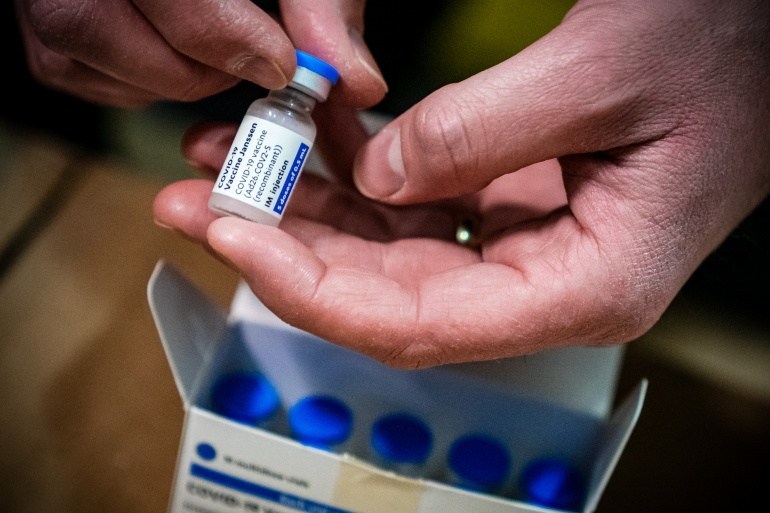A possible link between Johnson & Johnson's coronavirus vaccine and very rare cases of unusual blood clots with low blood platelets has been found, the European Medicines Agency (EMA) announced on Tuesday.
EMA's safety committee (PRAC) concluded that a warning about unusual blood clots with low blood platelets should be added to the product information for the company's Covid-19 vaccine, and that they should be listed as "very rare side effects" of the vaccine.
However, EMA also confirmed that the overall benefit-risk analysis remains positive, and the benefits of preventing Covid-19 outweigh the risk of side effects.
While the Agency is not recommending any steps to limit the vaccine's use, it urges healthcare professionals as well as people who will receive the vaccine to be aware of the possibility of this side effect occurring within three weeks of vaccination.
Related News
- EMA investigating second side effect of AstraZeneca vaccine
- More than 800,000 vaccines to be delivered next week, none from Johnson & Johnson
- EMA to announce evaluation of Johnson & Johnson coronavirus vaccine today
To reach this conclusion, the PRAC considered all currently available evidence, including eight reports of serious cases of unusual blood clots associated with low levels of blood platelets, one of which had a fatal outcome, in the United States, where over 7 million people received the vaccine as of 13 April 2021.
All cases occurred in people under 60 years old within three weeks after vaccination, the majority of which were women.
Based on the currently available evidence, however, specific risk factors have not been confirmed, according to EMA.
Additionally, the PRAC also noted that the blood clots mainly occurred at "unusual sites" such as in veins in the brain (cerebral venous sinus thrombosis, or CVST), the abdomen (splanchnic vein thrombosis) and in arteries, together with low levels of blood platelets and sometimes bleeding.
The cases reviewed were very similar to the cases that occurred with AstraZeneca's Covid-19 vaccine, according to EMA.
One plausible explanation for the combination of blood clots and low blood platelets is an immune response, leading to a condition similar to one seen sometimes in patients treated with heparin, called heparin-induced thrombocytopenia (HIT).
Maïthé Chini
The Brussels Times

